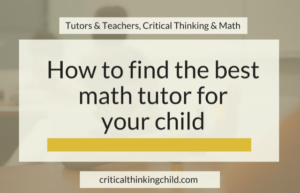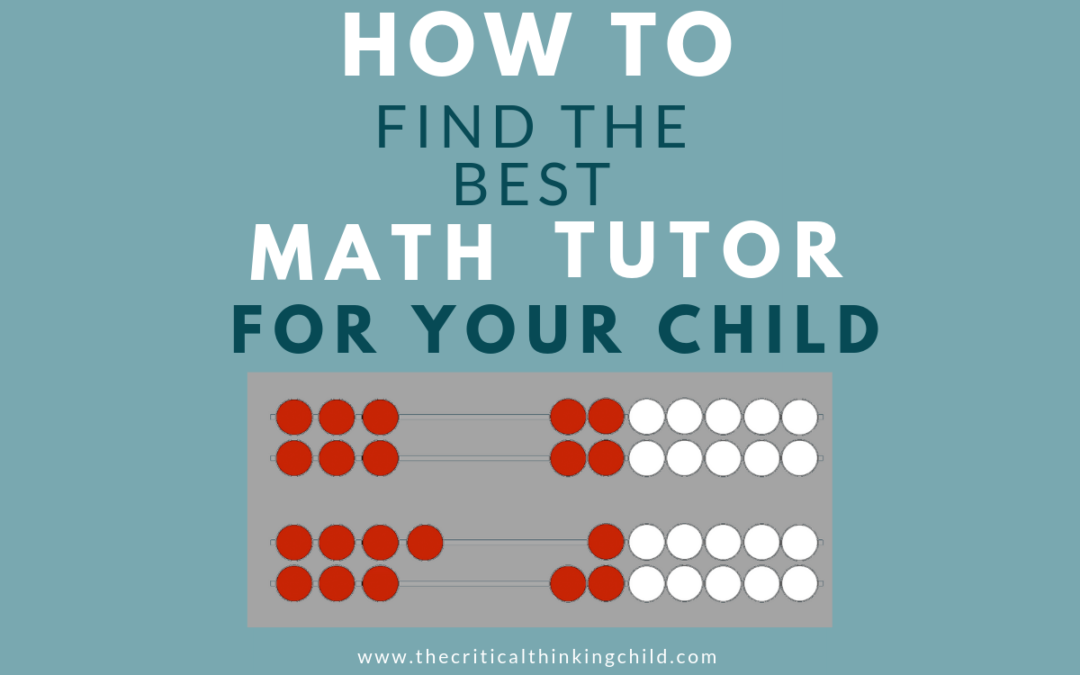You’ve noticed that your child has started to fall behind in math class. Homework is a struggle and grades are dropping. You’ve checked all the boxes, and you know it’s time for a math tutor. Finding a math tutor can be an overwhelming process. Here are three (3) quick and easy tips to finding a math tutor.
#1 Start your hunt for a math tutor at your child’s school.
You know your child best, but your child’s teacher spends a lot of time with them. Schedule a parent-teacher conference to learn what specific skills your child is struggling with and why. It could be that they are making careless mistakes, that the language confuses them, or that they lack prerequisite skills. Getting as specific as possible will help you identify needs and find tutors that are best suited to meet these needs.

Once you’ve identified your child’s specific needs, ask if the teacher can recommend specific tutors or tutoring programs. Many schools provide before or after school tutoring and many teachers also tutor outside of school hours. It’s often a conflict of interest when the tutor teaches the child, but your child’s teacher may recommend a colleague at the same school. This can make logistics easier and the tutor may already have a relationship with your child.
#2 Check your potential tutor’s credentials
Tutors should go through the same screening as any other job. Compile resumes from a few top candidates and really check their qualifications. If your child needs help with secondary math like algebra or calculus, your tutor should have a more advanced math background. If your child is in elementary or middle school, look for a tutor with an education background or prior teaching experience.
Once you’ve decided on a few frontrunners, interview each candidate to see if their skill set fits with the specific needs you have identified with your child’s teacher.
#3 Monitor your new tutor for fit.
Once you’ve selected a tutor, it is completely reasonable to watch one of the first few tutoring sessions to make sure the tutor is a good fit for your child. Does your child like and respect the tutor? Does the tutor have a good rapport with your child?
Additionally, look for teaching style and learning style similarities. For example, if your child learns visually but the tutor does a lot of talking, it might not be a good fit. Or, if your child is a kinesthetic learner who learns by doing and the tutor relies on reading and pictures, you might want to go another direction. A good tutor will be adaptable to different learning styles. Finding out sooner rather than later if the tutor isn’t a great fit will save you time and energy in the long run.
Finding a math tutor doesn’t have to be a difficult process. Always start with the teacher and school to figure out your child’s unique needs, find a few individual tutors, nonprofits, or agencies that might be a good fit, and monitor the first few tutoring sessions to make sure the tutor is a good fit for your child. You and your child are on your way to math success!




Since I’m not the best at math, I think it would be a good idea to have a tutor for my son once he reaches that age. I don’t want him to get behind in math or struggle as I did. I would just make sure that the tutor knows what they are doing so that way, I can be sure that they will be a good fit for my child.